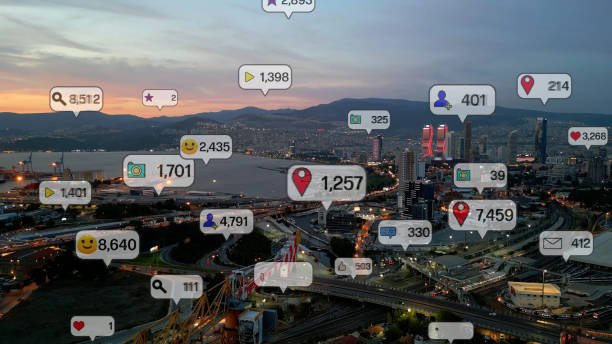Introduction to the Digital Culture Shift
The digital age has irrevocably transformed how we create, consume, and influence culture. Social networking platforms have emerged as the epicenter of this transformation, where ideas travel at the speed of a click, and ordinary individuals can become trendsetters overnight. From the rise of viral dances to the birth of internet celebrities, social media has rewritten the playbook for pop culture. It’s no longer limited to a top-down flow from celebrities and mass media; now, it thrives on participation, collaboration, and instantaneous global reach. This seismic shift has not only democratized cultural production but has also made social networking the most influential driver of trends in contemporary society.
The Democratization of Influence
Before the advent of platforms like Instagram, TikTok, and Twitter, pop culture was largely dictated by a handful of institutions—Hollywood studios, record labels, and fashion houses. Today, social networking has leveled the playing field. Anyone with a smartphone and internet access can create content, reach millions, and set cultural trends. This democratization of influence has enabled a more diverse range of voices to shape the cultural narrative. Micro-influencers, niche content creators, and everyday users now have a legitimate place in steering conversations around music, fashion, language, and lifestyle. The power to influence has shifted from the elite to the crowd, making pop culture more inclusive and unpredictable.
Virality and the Lifecycle of Trends
One of the most distinctive features of social networking is the speed at which content can go viral. What once took months of marketing campaigns to popularize can now happen in a matter of hours through shares, likes, and reposts. Memes, dances, slang, challenges, and even social movements can surge into public consciousness almost instantaneously. While this rapid virality creates exciting opportunities for cultural innovation, it also shortens the lifecycle of trends. The ephemeral nature of online fame and influence means that what is considered “in” today might be outdated tomorrow. This constant churn pushes users and creators to be endlessly inventive, but it can also lead to trend fatigue and a lack of depth in cultural engagement.
Influencer Culture and Celebrity Reimagined
Social networking has given birth to a new kind of celebrity—the influencer. Unlike traditional celebrities who rose to fame through film, television, or music, influencers gain recognition primarily through their online presence. They build their brands by sharing curated glimpses of their lives, offering tutorials, or voicing opinions that resonate with a specific audience. These digital personalities often become more relatable and accessible than conventional celebrities, making them powerful agents of influence. Brands, media companies, and even political organizations now rely on influencers to drive messaging and consumer behavior. As a result, the lines between personal authenticity and commercial performance are increasingly blurred in today’s celebrity culture.
Shaping Fashion and Beauty Standards
Fashion and beauty trends have become increasingly decentralized due to social networking. In the past, seasonal collections from major fashion houses dictated the direction of style. Now, platforms like Pinterest, Instagram, and TikTok allow individuals from all walks of life to showcase their interpretations of style. Street fashion, thrifted clothing, and do-it-yourself aesthetics have gained prominence alongside luxury brands. Beauty standards, once confined to narrow definitions promoted in magazines and television, are now more fluid. Social media has amplified movements that celebrate body positivity, diverse skin tones, and gender-fluid expressions of beauty. At the same time, filters, editing apps, and curated content also perpetuate unrealistic standards, contributing to complex conversations about self-image and authenticity.
Music Discovery and Genre Evolution
Music has perhaps experienced one of the most dramatic shifts due to social networking. Platforms like TikTok have become powerful music discovery tools where snippets of songs can gain massive popularity, propelling unknown artists into the spotlight. The traditional music industry’s gatekeepers have less control than ever, as algorithms and user engagement drive what gets heard. Genres have become more blended, and new sub-genres are born from online communities experimenting with sounds. Viral soundbites often define the soundtrack of a cultural moment, influencing everything from advertising campaigns to fashion runway music. Social media has become both a stage and a studio, where musicians can directly connect with fans and create content that aligns with evolving digital tastes.
Language, Humor, and Meme Culture
The language of pop culture has been transformed by the rapid proliferation of memes, GIFs, emojis, and internet slang. Social networking has birthed its own lexicon, one that evolves with lightning speed and is heavily influenced by platforms like Twitter, Reddit, and TikTok. These digital dialects shape the way people communicate online and in real life, influencing speech patterns, humor, and storytelling. Meme culture, in particular, has become a defining aspect of contemporary humor and commentary. It allows users to express complex emotions or social critique in a single image or phrase, often satirical, relatable, and highly shareable. This new form of communication has blurred the lines between entertainment, critique, and cultural documentation.
Political Activism and Cultural Movements
Beyond entertainment, social networking has become a potent platform for political and social movements that influence pop culture narratives. Hashtags like #BlackLivesMatter, #MeToo, and #ClimateStrike began as online campaigns and rapidly translated into global conversations and real-world activism. These movements shape music, film, fashion, and public discourse, proving that pop culture is not separate from societal issues but deeply intertwined with them. Artists, influencers, and users contribute to shaping a new kind of politically aware culture where entertainment and activism coexist. While critics argue about performative activism, the impact of online mobilization on cultural consciousness is undeniable.
The Role of Algorithms in Cultural Consumption
Social networking platforms are powered by algorithms that determine what content users see, often reinforcing specific types of engagement. These algorithms shape cultural consumption by amplifying certain voices, trends, or aesthetics based on what drives user interaction. While this can lead to the rapid spread of new ideas, it also risks creating echo chambers and homogenizing culture. Users may find themselves exposed only to content that aligns with their existing preferences, limiting their exposure to diverse perspectives. This curated experience plays a significant role in shaping personal taste, public opinion, and ultimately, the direction of mainstream trends.
Globalization and Cultural Exchange
Social networking has made pop culture more global than ever before. Artists, creators, and trends from non-Western countries are now able to gain international visibility without needing traditional industry gatekeepers. K-pop, for example, has become a global phenomenon largely through social media fan bases and viral content. Similarly, African music genres like Afrobeats have found widespread popularity through platforms like YouTube and TikTok. This cultural exchange enriches the global cultural landscape and fosters a more interconnected understanding of creativity. However, it also raises questions about cultural appropriation, representation, and the ethical sharing of traditions in a digital world.
Consumer Behavior and Brand Culture
Brands have had to evolve rapidly to keep up with the dynamic nature of social media-influenced culture. Traditional advertising has given way to content marketing, influencer partnerships, and interactive campaigns. Consumers now expect brands to be not only trend-aware but also socially conscious and responsive. Viral marketing campaigns often hinge on meme participation, trend-jacking, or collaborating with popular digital creators. The relationship between brands and consumers has become more conversational, with social networking providing a direct feedback loop. Successful brands become part of the culture rather than observers of it, shaping and being shaped by the very trends they engage with.
Impact on Mental Health and Identity
While social networking’s influence on pop culture brings innovation and inclusivity, it also introduces challenges related to mental health and identity formation. The pressure to perform, the constant comparison with others, and the fast-paced evolution of trends can lead to anxiety, self-doubt, and a sense of inadequacy. Pop culture is no longer something we passively observe; it’s something we participate in, and that participation can be emotionally taxing. Users often grapple with questions of self-worth tied to likes, comments, and follower counts. These issues reflect a deeper cultural shift in how we perceive ourselves and our place in the social ecosystem.
The Future of Pop Culture in a Social Media World
As social networking technologies continue to evolve, the influence they exert on pop culture will only intensify. The integration of augmented reality, virtual influencers, and AI-generated content is already changing the way cultural products are created and experienced. With platforms constantly innovating and new generations entering the digital space with different values and creative sensibilities, pop culture will continue to be dynamic, decentralized, and deeply interactive. The challenge for future creators and consumers will be to harness the power of social networking while maintaining authenticity, mental well-being, and cultural sensitivity.
Conclusion: A New Cultural Paradigm
Social networking has revolutionized the way pop culture is created, shared, and consumed. It has shifted cultural power from centralized institutions to decentralized communities. Enabled global cultural exchange, and turned everyday users into influential creators. From viral trends and new music genres to political activism and brand storytelling. The impact of these platforms on our collective cultural experience is vast and profound. As we continue to navigate this digital landscape, social networking remains not just a mirror of culture, but one of its most powerful architects. The story of pop culture is now being written in real time, by millions of hands, across billions of screens.



